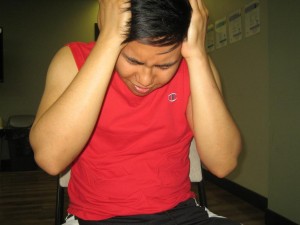Barotrauma is an injury to the body due to the changes in pressure between an area of the body and the external environment. This change in pressure can occur with change in altitude in the air (barometric) or water. This can occur in the ears, sinuses, and teeth, but the most common type occurs in the ear. Sinuses are hollow spaces in the skull found behind the bones of the forehead, cheeks, and eyes. Other body organs where barotrauma can occur include the lungs, stomach and intestines. The change in pressure traps air and builds up inside a particular part of the body. Barotrauma is also called a squeeze.
Causes of Barotrauma
The following may cause unequal pressure between the body and its environment leading to trapped air in the body:
- Scuba diving, including doing Valsalva’s maneuver
- Traveling by aircraft
- Blast injuries
- Using a ventilator machine
- Hyperbaric oxygen treatment
Risk Factors for Barotrauma
Although barotrauma can occur to anyone who experiences change in altitude, certain factors may increase a person’s risks for developing barotrauma:
- Upper respiratory infection
- Polyp in the nose
- Hardened wax in the ear canal
- Having a hole in the wall separating the right and left sides of heart, also called right to left shunt
- Asthma and lung diseases
- Stomach or anal problems
Signs and Symptoms of Barotrauma

The signs and symptoms of barotrauma may vary depending on the part of the body that is experiencing symptoms. However, the most common signs and symptoms include for all types include:
- Pain
- Dizziness
- Feeling of stuffiness in the ear
- Hearing loss
First Aid Management for Barotrauma
Barotrauma may not always require treatment but it is highly advised to seek medical advice at all times if one experiences barotrauma. This is a precaution to avoid any further complications from developing. The following can be done to help manage cases of barotrauma:
- If one is under water, ascend immediately to the surface
- Take medications such as analgesics to reduce pain, decongestants to help dry up nose fluid, antibiotics to treat infections, laxatives to avoid straining during release of feces, and steroids to lessen swelling of the ear lining, nose and sinuses
- To help equalize or relieve the pressure in the ear, chew gum or yawn.
Barotrauma is injury to the body caused by pressure changes between the body and its external environment. To learn more about how to treat and manage barotrauma and other problems caused by change in altitude, enrol in First Aid Courses with St Mark James Training.
Online Sources:
